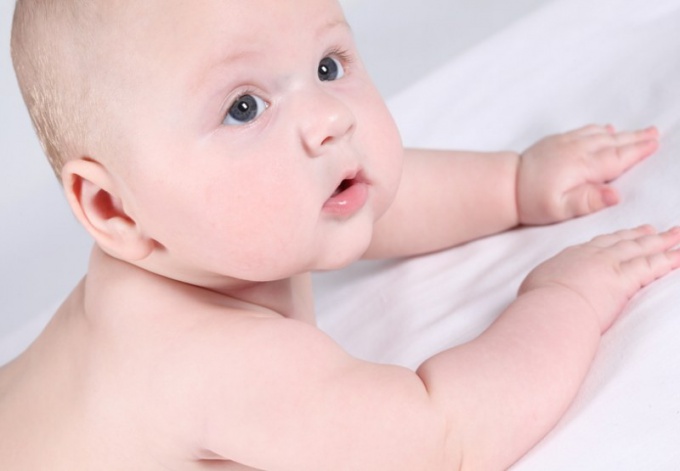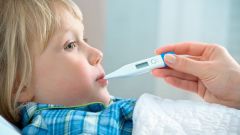When to bring the temperature down
In the heat up to 38.5°C subject to normal condition high temperature is not recommended, as the baby's body should form your "immune response" to an infectious disease. However, if the child is registered on neurology or, there is a so-called "white" fever, when at high temperature the extremities remain cold, and the skin takes on marbling, it is necessary to bring down the temperature after reaching the mark at 38.0°C. This condition is dangerous to the development of seizures. Also when symptoms of "white" fever pediatricians recommend to give drugs, relieving spasm.
Normal children tolerate the temperature, while remaining mobile and active. Of course, a little lethargy and refusal to eat is quite acceptable. In some cases, hypersensitive to heat, if the child is literally in the tank, refusing food and drink and experiencing various ailments such as headaches, nausea, etc., are allowed to bring the temperature down, even if it has not yet risen to the appropriate level.
Antipyretics for three children
Anti-fever medicines for infants are available in the form of suspensions, syrups or rectal suppositories because the baby is not able to swallow the tablet or capsule. If three child climbed the the temperature, first of all, undress the baby, because of excessive wrapping only increases the temperature of the body. You can apply a physiological cooling by applying wet cool cloth to the passage of large vessels.
As for drugs, it is safe and effective for children of this age are only products based on paracetamol or ibuprofen. Who and Fargocom of the Russian Federation do not recommend the use of aspirin for children younger than 15 years. This drug is administered only by injection in the composition of the lytic mixture and only if ibuprofen and paracetamol didn't work.
To antipyretic drugs, the active ingredient of which is paracetamol include the following trademarks: "Paracetamol child", "children's Panadol", "Tsefekon", "Calpol", "Efferalgan". Children under the age of three, "Paracetamol" administered in the form of suspension or syrup 2.5 ml 3-4 times a day at intervals of 4-5 hours.
"Children's Panadol" appoint only full-term children at the rate of 15 mg/kg 3-4 times a day. Suppositories are used for 1 piece of no more than 3 times a day. The drug "Tsefekon" is one of the most popular antipyretics. Children older than 3 months are allowed 1 use of suppositories a dose of 100 mg every 4-6 hours; duration of treatment is 3 days. Suspension "Calpol" is used to reduce high temperature in children older than 3 months. It take 2.5 ml with a large amount of fluid 1-2 hours after a meal.
The drug "Nurofen" is available in the form of syrup, and rectal suppositories. The syrup is allowed to children older than 1 month. The drug given in a pure form or diluted with water, milk or juice. On the measuring spoon supplied with the medication marks have been made, meaning the child's weight, which determines the dose of medication. In the form of suppositories, the drug is administered in a dose equal to 1 suppositories, 3-4 times a day. Candles provide a longer antipyretic effect, and the syrup gives a rapid decrease in temperature.
To antipyretic drugs based on ibuprofen recommended for children under the age of 3 months, is "glycine". "Nurofen is available in the form of suspensions and suppositories. Suspension take 2.5 ml 3 times a day in equal time intervals for 3 days. If the reception of a suspension is not possible due to nausea or vomiting, you can use Nurofen in the form of candles. 1 suppository inserted rectally every 6-8 hours.

